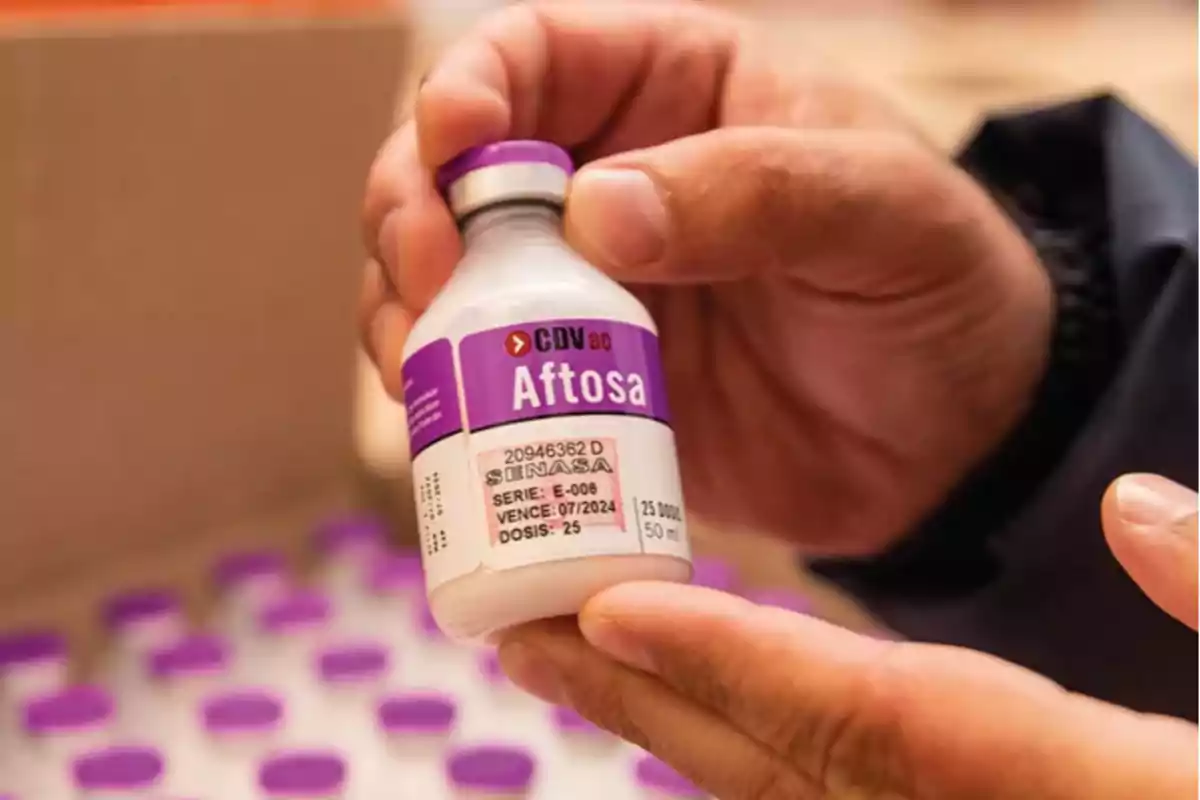
The Government frees the veterinary vaccine market and targets competition
The regulatory change directly impacts the foot-and-mouth vaccine business, which is much more expensive than in the region
The national government took a new step in its economic deregulation agenda. After announcing the gradual end of the Tierra del Fuego regime through the reduction of tariffs for the importation of cell phones, it now focuses on the veterinary vaccine market, dominated for decades by a single local supplier.
Through Resolution 333/2025 published by Senasa, a new scheme for the importation of veterinary products registered abroad is enabled. Among the key points, the acceptance of international certifications stands out, the elimination of local technical requirements considered restrictive, and a new period of up to 90 business days to authorize products, replacing the lengthy processes that could take up to two years.
Blow to Biogénesis Bagó's monopoly
The regulatory change directly affects the foot-and-mouth disease vaccine business, which is mandatory throughout the country and was supplied by Biogénesis Bagó, the only laboratory authorized until now. The new regulatory framework incorporates recommendations from the National Commission for the Defense of Competition (CNDC), which identified artificial barriers that limited the entry of competitors.

One of the most controversial obstacles was the requirement for a test called Foot-and-Mouth Generalization Protection (PGP), eliminated in the new regulation for being obsolete and costly. It was also recognized as an obstacle the systematic refusal of Senasa to accept vaccines approved in countries with effective health programs, such as Paraguay or Uruguay.
Sturzenegger: "A closed market artificially raised prices"
The Minister of Deregulation, Federico Sturzenegger, spoke about it through social media. He explained that while in Argentina a single vaccine was sold at 1.20 dollars per dose, in Paraguay the price was 0.35 dollars and in Uruguay 0.72 dollars. He also denounced that the same laboratory supplying the Argentine market sells cheaper in other countries.
During a radio interview, he assured that this change "reduces costs for the livestock chain by approximately 100 million dollars annually." According to him, the requirement that the vaccine contains four strains—two of which no longer circulate—functioned as a technical barrier designed to exclude other laboratories.
Key recommendations from the CNDC

The CNDC's report also proposes reforms in the vaccine application system. Among the suggestions:
- Eliminate the requirement of non-profit legal status to act as a health entity.
- Enable independent veterinarians to compete freely.
- Remove the exclusive geographic assignment to foundations.
- Repeal Article 16 of Resolution SAGPyA 108/2001, which sets mandatory fees.
If these changes are implemented, each producer could freely choose whom to hire to vaccinate their livestock, promoting competition and cost reduction.
A new scheme for all veterinary products
Although the resolution was driven by the situation around foot-and-mouth disease, its scope is much broader. It will apply to medicines, diagnostic kits, and biological products for exclusive animal use. All must have a Free Sale Certificate, the dossier approved by the country of origin, and comply with Good Manufacturing Practices.
Once the process is completed, Senasa will issue a Certificate of Use and Marketing. The procedures will be gradually computerized through the SIG-TRÁMITES system, and companies will bear the costs of auditing and oversight.
Expected impact starting in 2026
Although the current vaccination campaign will not be affected, official sources confirmed that the importation of new vaccines could be enabled from 2026. Among the companies that could benefit is Tecnovax, a complainant in the case, which has already begun efforts to bring vaccines from Brazil.
According to the CNDC document, the new scheme seeks to expand supply, reduce prices per dose, and democratize access to health supplies, allowing each producer to choose the most suitable option to comply with the plans established by the State.
More posts: